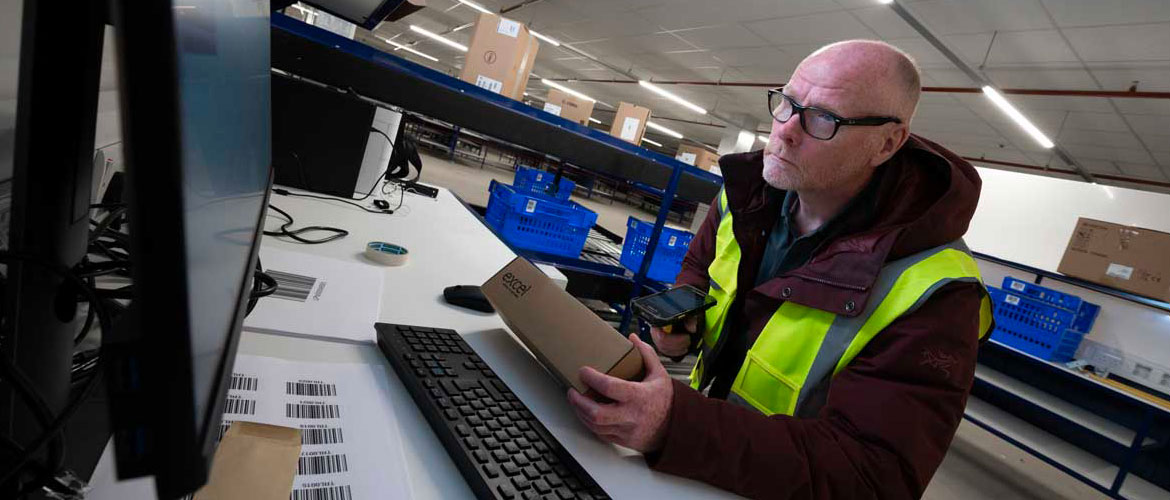eCommerce sellers hit by EU VAT changes

On 1st July 2021, the European Union is introducing sweeping reforms to the VAT obligations for B2C e-commerce sales and marketplaces, which will have a profound impact on UK eCommerce sellers.
An estimated 26,000 eCommerce sellers will have to register for VAT for the first time, as the EU imposes sweeping value added tax reforms on sales from outside the bloc, with additional red tape costs of £180 mllion.
The new rules, which will be introduced on the 1st July, were conceived to defeat a €7bn annual VAT fraud by non-EU eCommerce sellers, many of which are located in China, but after Brexit, UK companies will swept up by changes.
Small and medium-sized businesses exporting to EU customers are set to face the biggest upheaval because of the changes, which remove
The EU are removing VAT exemptions for SMEs and shipments not exceeding €22, which means that about 26,000 eCommerce sellers (equivalent to around 10% of the UK sector) will have to register for VAT, under the EU’s new “one-stop shop” system, which will cost on average €8,000 a year each, or £180m in total.
The UK implemented VAT marketplace liabilities reforms from 1st January 2021, while the EU package was delayed to this July.
The existing ‘Distance Selling Thresholds’ simplifications will be withdrawn and replaced by a single EU VAT return, to tackle the €5 billion eCommerce VAT fraud gap, by co-opting online marketplaces into collecting VAT in place of sellers.
UK exporters using e-selling platforms will now have three options when trading into the EU: register for VAT in the country where they sold most of their goods, which the European Commission estimates will cost €8,000; subcontract VAT to selling platforms such as Amazon or eBay; or ask the postal service to handle VAT.
1. Launching the One-Stop-Shop EU VAT return
2. Ending low-value import VAT exemption and new IOSS return
3. Making marketplaces deemed supplier VAT
1. A single EU VAT return for eCommerce distance selling
One Stop Shop (‘OSS’). Sellers shipping goods from their home country to customers across the EU may opt to use One Stop Shop (‘OSS’). to report all their pan-EU sales. This is an extension of the 2015 Mini One-Stop-Shop (‘MOSS’), which successfully trialled a single EU return for B2C sales of digital, telecoms and broadcast services.
2. Closing the import VAT exemption loophole – IOSS return
The €22 VAT exemption on small parcels being imported into the EU is being withdrawn, after being heavily abused by many sellers mistakenly or deliberately under-declaring the value of goods to avoid VAT. Instead, VAT must be charged at the point-of-sale for consignments not exceeding €150. This VAT may be declared and paid via a new submission, the ‘Import One Stop Shop’ (IOSS) which will create a more efficient fast-track, or ‘Green Channel’, quick and easy customs clearance.
3. Marketplaces become the deemed supplier and VAT collector
The July reforms will oblige marketplaces which facilitate cross-border sales to consumers via third parties to become the ‘deemed supplier’ in certain cases. This is also termed the full liability regime. This marketplace VAT liability does extend to product liability.
The key will be ensuring the software is there to enable VAT payments at the point of sale, subcontract VAT to selling platforms such as Amazon or eBay, or ask the postal service to handle VAT.
With platform typically charging 30% of gross prices for their VAT services, companies doing more than 150 transactions a year, which includes most of those doing business in the EU, might be advised to register themselves in the bloc, as the import one-stop shop (IOSS) approach could simplify life for smaller exporters.
While we do not anticipate that any of our customers will be affected by these changes, the whole area of VAT liability and compliance is complex, but there are always options to simplify, with the right blend of warehouse and customs regimes.
Our ePoint warehouse and specialist broker teams can provide advice and guidance, appropriate to your situation, to ensure that the most appropriate solution is in place for your trading and business.
For further information please contact Matt Fullard to discus your situation, objectives and options.

